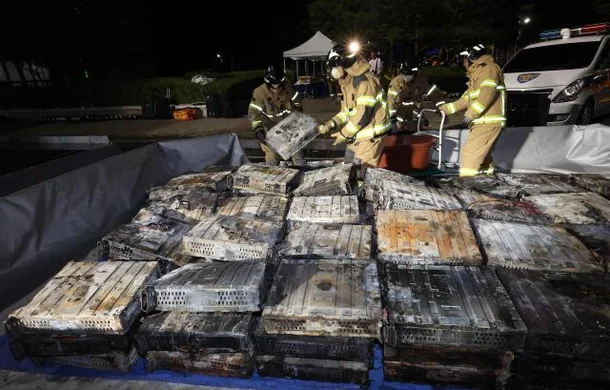This week’s are abıout tech, AI and data centers, coming from Korea, Taiwan and the USA
1-Google: 90% of tech workers now use AI on the job
Nearly nine out of 10 technology professionals are using AI at work, mostly to write or refine code, according to a new Google study.
I saw this story at CNN and the report, released by Google’s DevOps Research and Assessment (DORA) unit, surveyed 5,000 tech workers worldwide and found AI adoption has jumped 14% from last year. (By the way I have a story here how Google’s Veo 3 is used to generate a music video)
At Google, AI has already become entrenched. “If you are an engineer at Google, it is unavoidable that you will be using AI as part of your daily work,” said Ryan J. Salva, who oversees the company’s Gemini Code Assist tool.
Still, trust in AI-generated code remains mixed. Only 20% of survey respondents said they trust AI “a lot,” while nearly half expressed only limited confidence in its quality. About one-third said the tools slightly improved code, and another third reported no impact at all, according to the story.
The findings arrive at a difficult time for new tech workers. Software engineering job postings have dropped 71% since early 2022, according to Indeed, and unemployment for recent computer science graduates now outpaces that of humanities majors, New York Fed data shows.
Despite the challenges, some young workers remain optimistic. Julio Rodriguez, a recent graduate, told CNN he applied to more than 150 jobs before landing one, but believes AI will change — not erase — the profession.
Salva echoed that view, saying AI is “somewhere between stage three and four” on a five-point scale of sophistication and still requires human oversight. He added that hype has also accelerated adoption.

Google: 90% of tech workers now use AI on the job
2-TSMC to build 1.4-Nanometer fab in Taichung by 2028
Taiwan Semiconductor Manufacturing Co. (TSMC) will begin construction next quarter on a new 1.4-nanometer chip fabrication plant in Taichung, aiming to start production in 2028 with an estimated output value of up to NT$500 billion (US$16.5 billion), officials said
I read this story at Taipei Times and the project, known as Fab 25, will employ about 4,500 people and use TSMC’s most advanced process technology to date, Central Taiwan Science Park Bureau Director-General Hsu Maw-shin announced. He rejected media reports suggesting the chipmaker was slowing domestic factory projects.
“Everything is on schedule,” Hsu said. “TSMC plans to start construction in the fourth quarter and is arranging contractors for the work.”
The move marks an upgrade from the 2-nanometer technology originally planned for the site. TSMC expects to begin mass production of 2-nanometer chips next quarter at its Hsinchu and Kaohsiung fabs and to introduce 1.6-nanometer chips in Kaohsiung in the second half of 2026, fueled by rising demand for artificial intelligence and high-performance computing, the story noted.
The company is also planning an advanced facility in Tainan’s Shalun District and accelerating work on packaging technology expansion in Chiayi County, according to the Southern Taiwan Science Park Bureau, per the story.

TSMC to build 1.4-Nanometer fab in Taichung by 2028
3-Battery fire at South Korea data center halts hundreds of government services
A massive fire sparked by an apparent battery explosion at South Korea’s national data center has crippled hundreds of government services, including postal and tax systems, officials said.
I combined this story from CNN and Korea Times and the blaze broke out at the National Information Resources Service in Daejeon, about 130 kilometers south of Seoul. Authorities said the fire triggered a “thermal runaway” in a server room, producing intense heat that complicated firefighting efforts.
Prime Minister Kim Min-seok said the disaster had “paralyzed” the government’s digital platform, disabling internal e-mail, websites, and more than 600 online services. The shutdown also hit a mobile ID system used by travelers at airports, raising fears of disruptions. Almost 200 lithium-ion battery packs were destroyed, according to Yonhap news agency.
The Daejeon facility serves as a central cloud server for South Korea’s government databases and digital services. Interior ministry officials said the national platform for citizen complaints and petitions was also offline.
At a televised emergency meeting, Kim apologized for the outage and pledged to restore services quickly. “There were difficulties in containing the fire because of the nature of critical government systems being concentrated at one site,” he said.
Data center head Lee Jae-yong said no timeline had been set for service restoration, per the story.

Battery fire at South Korea data center halts hundreds of government services








